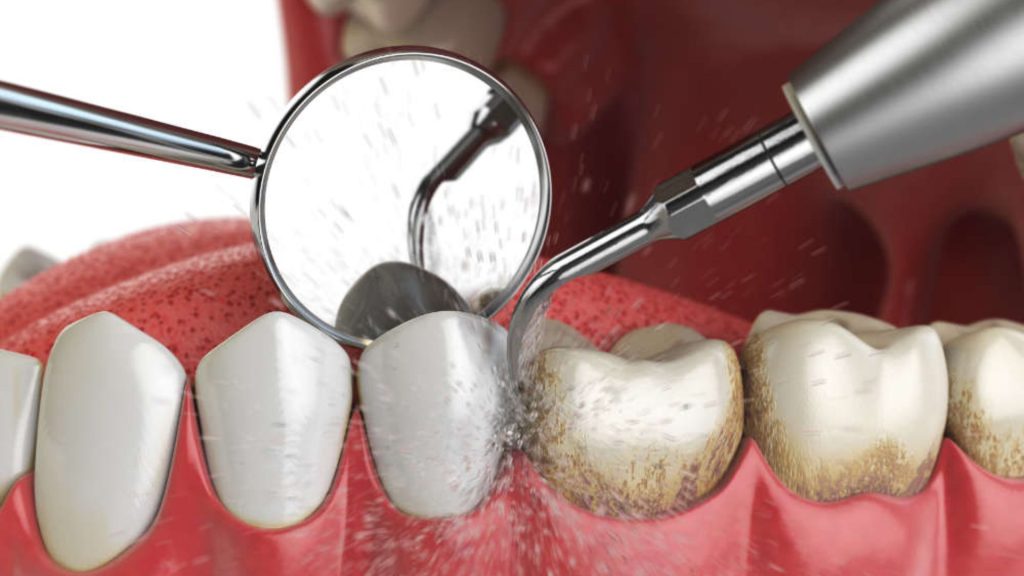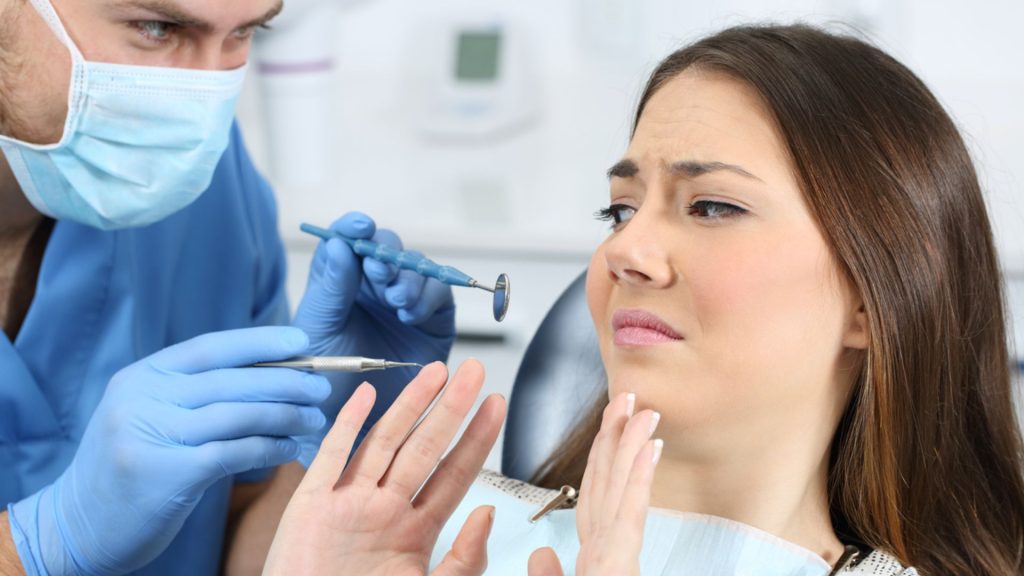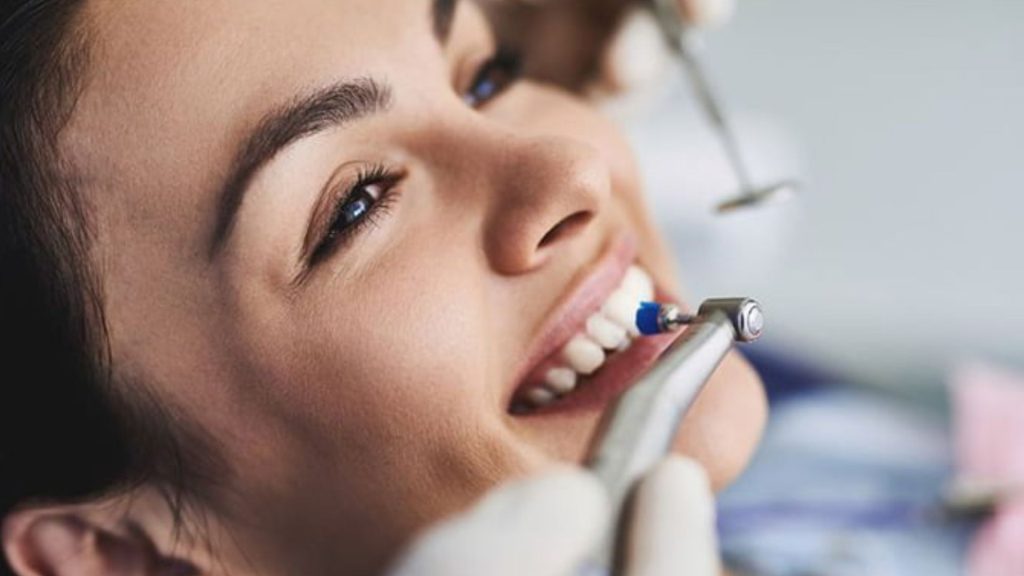How to relieve pain after teeth cleaning? Teeth that are cleaned on a regular basis are both healthy and appealing. Many individuals feel discomfort or sensitivity after tooth cleaning. This may make dental hygiene more difficult. You may continue striving toward improved oral health since there are easy techniques to alleviate the discomfort associated with teeth cleaning. Let’s look at ways to reduce discomfort and grin confidently after cleaning your teeth.
Why Is Tooth Cleaning Painful?


To keep our teeth in good condition, we make it a point to schedule biannual cleanings at the dentist. But sometimes this procedure is accompanied by unpleasant feelings of pain or discomfort. There are several potential origins for the discomfort felt after a dental cleaning, and awareness of these possibilities might help alleviate the pain.
- Physical action: The dentist removes plaque and tartar with dental equipment during teeth cleaning. The body reacts to pressure and friction from these appliances on the gums and teeth. This impact may cause moderate soft tissue damage and soreness.
- Swelling and Inflammation: Plaque and tartar removal might cause mild gum and tooth inflammation. This swelling and inflammation might hurt. This is normally a transitory symptom that goes away on its own.
- Effects of chemicals: Bleach and antibacterial cleaners can damage gums and soft tissues. This can cause cleaning pain.
- Existing Oral Condition: If the user has gingivitis, tooth decay, or other dental issues, cleaning may be more painful. Plaque and tartar removal can irritate affected regions.
Tooth-cleaning pain is usually transient and not a cause for concern, but knowing what causes it and how to decrease it can help you stay comfortable and maintain your oral health. The next section covers pain relief after a good tooth cleaning.
Toothache After Cleaning Dangerous?
While discomfort during dental hygiene is seldom indicative of something life-threatening, it may point to an issue that needs to be addressed. Tooth pain after dental hygiene: potential causes and remedies:
- Swollen and inflamed gums: Cleaning teeth may harm and inflame gums. This might hurt or numb. This sensation usually passes quickly.
- Sensitive teeth: Using harsher cleaning products or toothpaste with too many active ingredients might cause discomfort after cleaning sensitive teeth.
- Periodontal disease: If you have periodontal issues like tooth decay or gum infection, cleaning might hurt more.
- Dense Plaque: Plaque buildup from not brushing your teeth might cause pain and discomfort during the initial cleaning.
- Using the wrong technique: Damage and suffering might result from using the incorrect brushing method or cleaning equipment.
How To Relieve Pain After Teeth Cleaning At Home?


Once we understand what causes pain after cleaning teeth, we can employ home treatments to effectively alleviate this discomfort. Here are a few ideas to get you started:
Take Painkillers As Indicated
Pain medications can help after brushing your teeth. How to take painkillers properly is explained here: First, to learn the correct dosage and how to administer the medication, read the enclosed directions. Then, to avoid harsh digestive symptoms, take the medication after meals. After taking the medication, drink plenty of water. Next, follow the guidelines for dosing. Only exceed the recommended dosage if directed by your doctor. Finally, check your health after using the medicine. See a dentist if the pain persists or worsens.
Use Salt Water
If you have discomfort or swelling after brushing your teeth, gargle with warm salt water. Brine’s best applications are when it is used to:
- To begin, in a glass of warm water, dissolve a teaspoon of non-iodized salt. Salt is dissolved using a whisk.
- After that, rinse your mouth with salt water and massage your sore gums with it.
- Then, rinse your mouth with salt water for 30-60 seconds.
- Spit out the salt water without rinsing it off.
- Depending on the degree of the discomfort, repeat this 2-3 times per day.
Finally, rinsing with cold water will clean the area, minimize swelling, and make you feel better.
Apply Cold To Relieve Discomfort And Swelling
Once the process of brushing your teeth is complete, it is recommended to apply ice to the face in order to mitigate any potential swelling or discomfort. The subsequent instances exemplify appropriate utilization of the term “cold”:
- Put an ice cube or pack in a waterproof bag.
- Apply ice to sore gums and teeth for 15 minutes.
- Cover the skin with a small cloth when applying ice to avoid cold.
- Take a break while the cold is being applied. Wait a few minutes after removing cold weather gear before reapplying it.
- Repeat every 2 hours as needed to reduce pain and swelling.
Finally, ice not only reduces swelling but also numbs the affected area and reduces the sensation of discomfort.
Way to Prevent Discomfort After Cleaning Next Time
The dentist will tell you that alleviating any discomfort you may feel after having your teeth and mouth cleaned is crucial to maintaining good oral health. It is essential to have healthy teeth and gums and to minimize post-cleaning swelling and discomfort.
Use a fluoride-based mouthwash to protect teeth enamel and stop cavities. Avoid harming dental enamel and gum mucosa by brushing with a soft toothbrush and good technique. Make sure to brush your teeth and tongue at least twice a day to keep them healthy.
Avoid hot foods and drinks after brushing to protect tooth enamel and oral mucosa. Limit gum use and consult your doctor often to maintain oral health.
Lastly, rinsing your mouth with warm salt water after brushing your teeth can help reduce gum swelling. By following a regular oral care routine, you can guarantee that your mouth and teeth are constantly properly cared for and that you prevent pain after cleaning your teeth.
When Should Dentists Treat Discomfort After Teeth Cleaning?


While frequent tooth cleaning is essential for proper oral health, some pain should be anticipated afterward. While dealing with pain after a DIY tooth cleaning is typically successful, there are situations when expert dental treatment is necessary. Following a cleaning, there are various indicators that it is time to visit the dentist:
- Persistent and severe pain.
- Swollen, inflamed gums.
- Pain that doesn’t go away or doesn’t subside.
- Pain from other dental operations.
In any event, if you’re uneasy or in discomfort after cleaning your teeth, you should see your dentist for guidance and an examination.
Routine dental cleanings are an integral part of any dental care regimen. However, some discomfort following the operation is possible. Try painkillers, ice, saline, and sedating gums to alleviate discomfort.
However, if you have chronic discomfort, gingivitis, or any other abnormalities, you need to see a dentist immediately to get the finest advice and treatment. With expert dentists and cutting-edge technology, Spring Orchid Dental Clinic is devoted to providing you with high-quality treatment. If you want to keep your teeth in good shape and avoid more severe dental issues down the road, it’s important to see the dentist for check-ups.
Let Spring Orchid Dental become your reliable partner in oral health care, allowing you to smile without discomfort after a thorough cleaning.
FAQs
Does Thorough Cleaning Help Teeth?
Yes, deep dental cleanings reduce tooth discomfort. Plaque, bacterial plaque, and mineral deposits are all things that are cleaned away during a thorough dental cleaning. Get rid of these germs for a comprehensive tooth cleaning that regular brushing can’t do. Whiter, smoother, and cooler to the touch: that’s what newly cleaned teeth will be like. It may also help with bad breath and general dental health. Some people may have sensitivity for a few days after a thorough cleaning, although this usually subsides after a while. In conclusion, proper cleaning enhances oral health, revitalizes the smile, and prevents serious dental problems.
Are Dental Cleanings Painful?
Most individuals report minimal pain when brushing their teeth. However, some individuals may feel pain or sensitivity while having their teeth cleaned. You should feel considerably better after the cleanse is complete. If you have severe pain or discomfort after brushing your teeth, you should see your dentist right away.
How Long Will Thorough Cleaning Hurt Mouth?
The duration of pain or discomfort after a thorough cleaning varies according to the person and the state of your dental health. Some people may experience pain right after a thorough cleaning, while others may not. However, the pain associated with a thorough cleaning usually lasts for a few hours to a few days. To eradicate germs and mineral deposits on teeth and gums, a thorough cleaning may cause temporary discomfort. Pain is generally an indication that your gums and teeth are benefiting from the cleaning.





